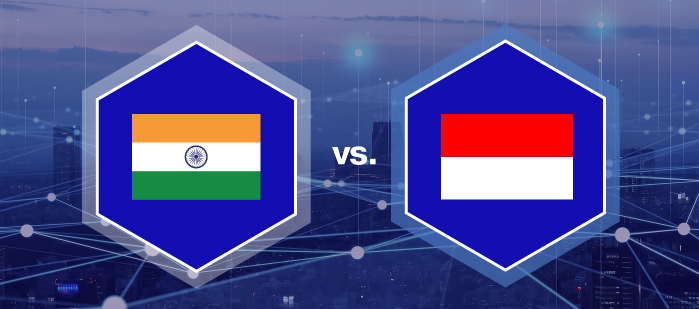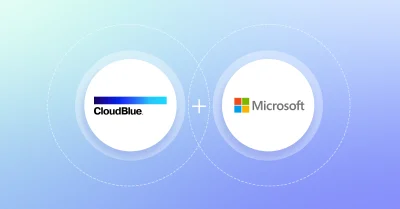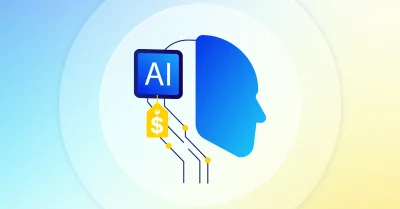Steffen Roehn, chairman of TM Forum, the global telco industry association, has a blunt message for telecommunications professionals.
“Telcos need to partner and adopt ecosystems when offering B2B services. It’s the only way to deliver cost-effectively.”
Roehn’s message couldn’t have been more straightforward: The age of the telco is giving way to the age of the techco. Traditional connectivity providers must evolve into technology solutions providers — or risk losing relevance and market share.
B2B services: the game changer
What will this evolution look like in the APAC region? Roehn hones in on three key themes:

- Telcos must evolve from traditional connectivity providers to technology solution providers, adding value generation to their businesses.
- There’s strength in numbers. Telcos can’t out-innovate the world, but with the right partnerships, they can integrate their services into powerful ecosystems.
- B2B services represent a significant growth opportunity for telcos as they move from digital adoption to digital differentiation to stay competitive.
Let’s focus on the third one, B2B services. B2B is one of the five main telco growth opportunities. The others are Network-as-a-Service (NaaS), consumer connectivity, developer experiences, and vertical opportunities. While all of these areas are important, the buzz around B2B services has reached a new intensity.
Why? To differing degrees, countries like India and Indonesia (discussed in more detail below) face a cutthroat market for traditional connectivity services, where price wars and customer churn have eroded their revenues and margins. To unlock growth and differentiation, telcos must roll out B2B services that leverage their network assets and customer relationships. From cloud computing and IoT solutions to cybersecurity and e-commerce, telcos can tap into new sources of revenue, increase customer loyalty, and create value for their business customers.
All of this sounds like an exciting and straightforward recipe for success. But in the cold light of day, telcos that want to become techcos face several hurdles.
One is the traditional telco mindset, which identifies an opportunity and promptly aims to develop the infrastructure and teams to capitalize on it. In Asia, these companies have long benefited from cheap labor. If they needed to hire 150 or even 500 people to build systems from the ground up, that’s what they’d do.None of this is meant as a criticism. The traditional telco mentality has provided connectivity to billions of people worldwide. But it’s not the mentality of a would-be techco. They’d look at the challenge of opening up new revenue streams through a different lens. Knowing that it’s no longer affordable to throw people at a problem — average IT salaries In India rose by 11 percent in 2022, as the global scarcity of tech talent continued to bite — this kind of company would adopt automation and run with a tighter, more agile team. Most importantly, a techco would reject the idea of hefty upfront investments in B2B services in favor of an ongoing partnership with a technology enabler, allowing it to tap into the power of ecosystems.
India vs. Indonesia: A tale of two telecom titans

So what’s stopping traditional telcos from becoming techcos? If ecosystems make so much sense, as Roehn insists, why doesn’t every telco take advantage of them? One reason is that telcos are constrained — and sometimes liberated — by the political, cultural, and economic conditions in which they operate.
To illustrate this point, let’s look more closely at the telco industries in India and Indonesia, which present contrasting landscapes in terms of market maturity and growth potential.
Unsurprisingly for a country whose population has just overtaken China’s, India is still grappling with connectivity and market education challenges. Still, the opportunities are immense, as Reliance JIO (India’s largest mobile network operator) demonstrates:
- over 421 million subscribers
- 20 GB monthly usage (66% YoY growth)
- a clear path to half a billion-plus subscribers
Despite the impressive numbers, Indian telcos like Reliance JIO must address the low annual revenue per user and the high potential for churn, especially among non-business users. Focusing on B2B solutions presents a path to new revenue streams and stickier services.
Compare and contrast with Indonesia, whose ARPU is higher relative to India and which seems primed for digital transformation and ecosystem development.
Indonesia has 134 mobile subscribers per 100 people. That not only trumps India (82 subscribers per 100 people) but also beats out Australia (105) and New Zealand (114), two of the most highly developed countries in the APAC region. With that market saturation, companies like Indosat, Indonesia’s second-largest telco, are almost forced to diversify. Sanjeev Rawat, Indosat’s chief digital officer predicts “a massive wave of digital adoption is coming to Indonesia.”
He’s undoubtedly correct. Look at the following growth drivers for the next five years, according to Indosat CEO Vikram Sinha.
- 21 million new internet users
- 64% of MSMEs going digital
- USD 2 billion government IT spending per annum
- At least 650,000 digital talent scholarship recipients
- 127% increase in Indonesian unicorn startups
- 98 million middle-income citizens
Clearly, Indonesia is committed to digital innovation and ripe for new B2B initiatives. But don’t assume every Indonesian telco can effortlessly evolve into a techco. Even under perfect conditions, the road to ecosystem development is strewn with obstacles.
A trifecta of challenges

Let’s look at the three main roadblocks. Any telco that wants to tap the power of digital ecosystems must reckon with the following:
Tech capabilities: Integrating an ecosystem involves overcoming technical hurdles like connecting multiple vendors and systems. Don’t underestimate the sheer number of players required for a flourishing ecosystem. Integrating just one vendor into a telco’s back office BSS and OSS systems can take up to six months. Now imagine doing that 20 to 30 times to achieve the critical mass of vendors TM Forum recommends for an ecosystem to succeed.
Commercial and contractual considerations: Telcos must navigate contractual obligations when working with third parties and establish beneficial agreements for all involved. Studies have shown that a telco can take anywhere from six to nine months to sign a contract with a vendor just to resell its services.
The human factor: Adapting processes, upskilling sales teams, and incentivizing the right behaviors are critical to successfully adopting new ecosystems and partnerships. Traditional telco sales teams excel at selling connectivity services, from SIM cards to broadband access. But selling B2B services is an entirely different ball game — a fact that far too many telcos overlook. Even if the company manages to overcome the technology and contractual challenges, its ecosystem may sit idle, failing to generate value simply because its sales teams lack the know-how to position these new services.
Viva the evolution!

That’s quite the to-list for a traditional telco looking to grab a bigger slice of the digital pie. However, the potential rewards of evolving into a techco far outweigh the challenges. According to a recent International Data Corporation (IDC) forecast, APAC’s public cloud services market will hit US$153.6 billion in 2026. The acceleration in this market is striking, with a predicted compound annual growth rate (CAGR) of 23.5% (compared to 14.1% in the United States over a similar period). The SaaS market alone will more than double from US$22.9 billion in 2021 to US$58.1 in 2026 when it will comprise almost 40% of the entire APAC cloud services market.
This data sends a clear message: APAC telcos that continue to invest in cloud services and adjacent technologies will be well-positioned to create new revenue streams, reduce customer churn and differentiate themselves in a fiercely competitive marketplace.
The key to this transformation lies in finding the right partners to provide pre-integrated ecosystems, contractual solutions, and expertise in people and processes. CloudBlue, for instance, offers a unique value proposition as a technology enabler and marketplace platform, with a fully integrated ecosystem of over 300 vendors, syndicated contracts through Ingram Micro, and a skilled sales team that can help telcos execute their sales strategies from day one.
Let’s not overstate the perils of the telco-to-techco journey though. Many telecom companies have a history of adapting and embracing new business models. Mobile operators have often divested aspects of their businesses to streamline operations and improve efficiency. For example, many have spun off their tower networks, demonstrating a willingness to shift away from doing everything in-house. Another case in point is the emergence of Mobile Virtual Network Operators (MVNOs). These organizations epitomize the idea of outsourcing core aspects of our operations, as they don’t own the network infrastructure but instead rely on the infrastructure of other providers.
Adapt or fade away: the future of APAC’s telcos

The APAC telco scene is undergoing a sea change as traditional connectivity providers evolve into techcos, harnessing the power of digital transformation to create new revenue opportunities and redefine their roles in the market.
As the industry reshapes itself, there will be losers as well as winners. A wave of mergers, acquisitions, and consolidations is on the horizon. Ultimately, only a few select players in each country will succeed.
The sprint to claim those spots has already begun. True Corp and Dtac, two major Thai carriers, merged in 2022 — the largest telco merger in Southeast Asia by combined enterprise value. Retaining the True Corp brand name, this entity will have 51 million subscribers and an enterprise value of over $20 billion. The new company aims to combine the strengths of Dtac and True to deliver high-quality connectivity and take advantage of the latest trends in 5G, AI, and IoT.
The race to consolidate is also heating up in Malaysia, where Celcom Axiata and Digi now have equal ownership in a newly merged entity named Celcom Digi. This new telco will serve an estimated 20 million customers, with revenues of RM13 billion (US$3 billion). Jørgen C Arentz Rostrup, Head of Asia at Telenor, Digi’s parent company, stated that by merging the strengths of two popular local telco brands, the new company can enhance customer satisfaction and provide a more extensive platform to serve the growing needs of Malaysian SMEs and large enterprises.
To thrive in this brave new world, telcos must wholeheartedly embrace partnerships, tap into the power of ecosystems, and zero in on B2B services as a vital growth engine. By seizing these opportunities, they can unlock the true potential of digital transformation and solidify their position in the telecommunications industry’s future.













